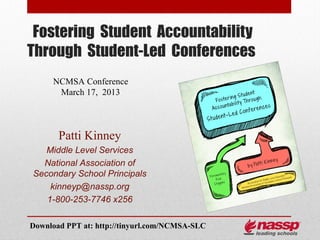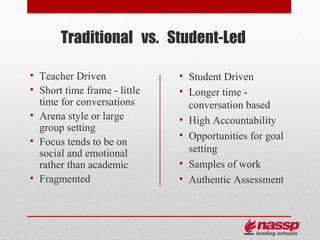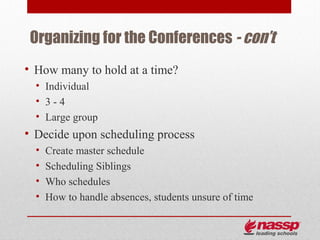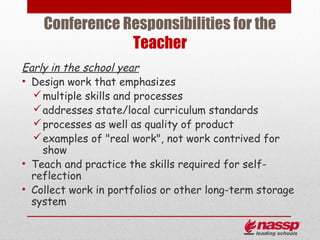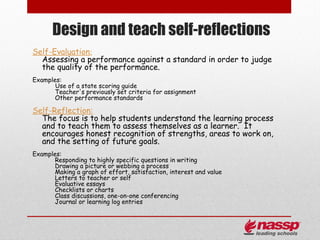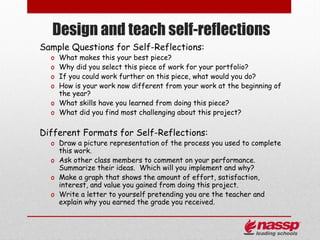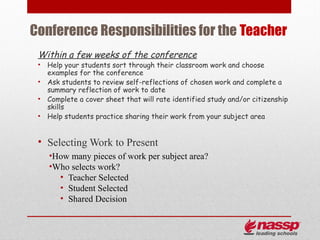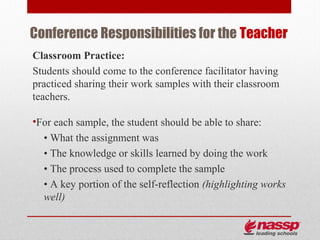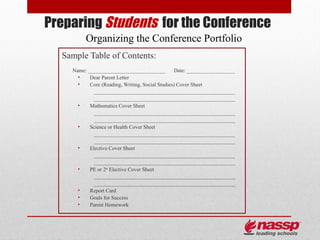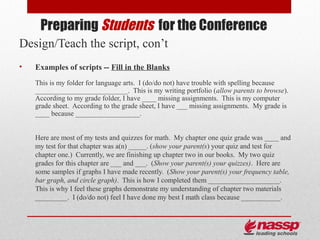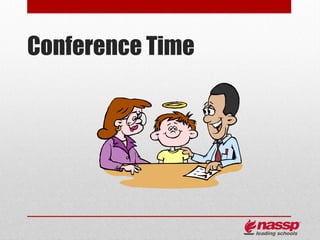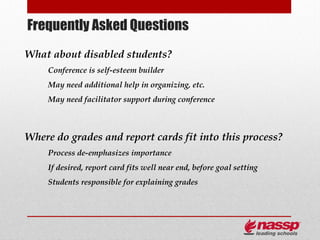Student-led conferences require preparation from both students and teachers. Teachers must design assignments that foster self-reflection, collect student work in portfolios, and help students learn to evaluate their own work. Students must organize their work, write reflection letters, and practice presenting to teachers. The goal is for students to take responsibility for their learning by sharing work and setting goals at conferences led by themselves with their parents.
